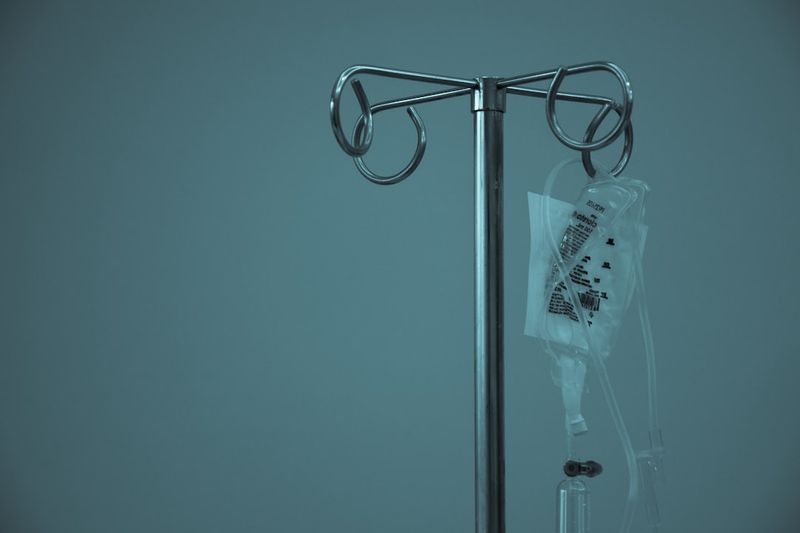Table of Contents
Nonprofit Hospitals in the US Exploiting Low-Income Patients and Neglecting Government Oversight, Fueling a Health Care Crisis
Introduction
On June 15, 2023, Human Rights Watch released a 62-page report titled “In Sheep’s Clothing: United States’ Poorly Regulated Nonprofit Hospitals Undermine Health Care Access.” The report highlights the failure of the US government to adequately regulate private nonprofit hospitals and provide quality healthcare alternatives, which in turn undermines access to healthcare. The report reveals how privately operated tax-exempt hospitals, despite receiving massive public subsidies, spend far less on making healthcare services accessible for low-income patients than they should. Instead, these nonprofit hospitals engage in abusive billing and debt collection practices, perpetuating the medical debt crisis in the country.
The Lack of Government Regulation
The report exposes a glaring gap in the government’s oversight of nonprofit hospitals, allowing them to operate more like for-profit corporations rather than fulfilling their mission of providing affordable, accessible healthcare services to the communities they serve. The United States heavily relies on the “charity care” provided by nonprofit hospitals to ensure care for those who cannot afford it. However, the lack of clear guidelines and inadequate enforcement of existing regulations has given these hospitals the discretion to decide how much they spend on making care accessible to low-income patients.
The result is a system where many nonprofit hospitals prioritize profit over service, charging high fees and aggressively pursuing medical bills against people who cannot afford to pay them. The report highlights the various exploitative practices, including lawsuits and selling debt to third-party collectors, employed by nonprofit hospitals to recoup their costs. These practices not only contribute to medical debt but also perpetuate structural discrimination, disproportionately impacting women, communities of color, people with low incomes, and individuals with disabilities.
The Impact on Human Rights
This deeply flawed system not only undermines access to healthcare but also has far-reaching consequences on other fundamental rights. The burden of paying for expensive hospital care or servicing medical debt often comes at the expense of covering other essential needs such as housing, education, and food. As a consequence, marginalized groups are further marginalized, deepening existing inequalities in society.
Considering healthcare as a fundamental human right, this crisis directly infringes upon the right to health and the right to social security. Access to quality healthcare should not be determined by an individual’s ability to pay but should be guaranteed to all, regardless of their financial circumstances.
A Call for Policy Change
Human Rights Watch suggests several measures to address this crisis and ensure equal access to quality healthcare. In the long term, the US should consider moving away from its charity-dependent model of hospital services and explore alternatives such as creating a public healthcare system that is universally accessible, regardless of individuals’ ability to pay. Other high-income countries have successfully implemented such systems, and it is time for the US to consider similar options.
In the short term, the Internal Revenue Service and the Centers for Medicare and Medicaid Services, as the principal regulators of nonprofit hospitals, should adopt and amend policies to ensure that these hospitals provide healthcare benefits that align with the tax exemptions they receive. National and state legislators, as well as administrative authorities like the Consumer Financial Protection Bureau, should step in to regulate both nonprofit hospitals and third-party debt collectors, explicitly prohibiting harmful practices that exacerbate the medical debt crisis.
Conclusion
The report by Human Rights Watch sheds light on a critical issue plaguing the US healthcare system: the exploitation of low-income patients by nonprofit hospitals and the weak government oversight that perpetuates this crisis. If left unaddressed, this crisis will continue to undermine people’s access to healthcare, perpetuate inequality, and violate fundamental human rights.
It is imperative for policymakers, legislators, and regulatory bodies to prioritize comprehensive reforms that prioritize affordable, accessible healthcare for all. The US must shift away from a system driven by profit and charity and move towards a model that guarantees quality healthcare as a fundamental right. Only by doing so can the US ensure that public subsidies for nonprofit hospitals truly serve their intended purpose and alleviate the burden of medical debt on individuals and communities.

<< photo by Marcelo Leal >>
The image is for illustrative purposes only and does not depict the actual situation.
You might want to read !
- Why Poverty Targeting Algorithms in Jordan are Raising Concerns Over Human Rights
- Renewing Commitment to Universal Housing in Kenya: Reflections on the Habitat Assembly
- The Human Toll of Iran’s War on Drugs: Prisons Turned Killing Fields with Triple Number of Executions in 2021
- The Alarming Rise in Deaths in Custody in Lebanon: A Call to Wake Up
- Sinjar Reconstruction Stymied by Political Fights in Iraq
- The Latest Attack on Trans Rights: Russia’s Proposed Ban on Trans Health Care